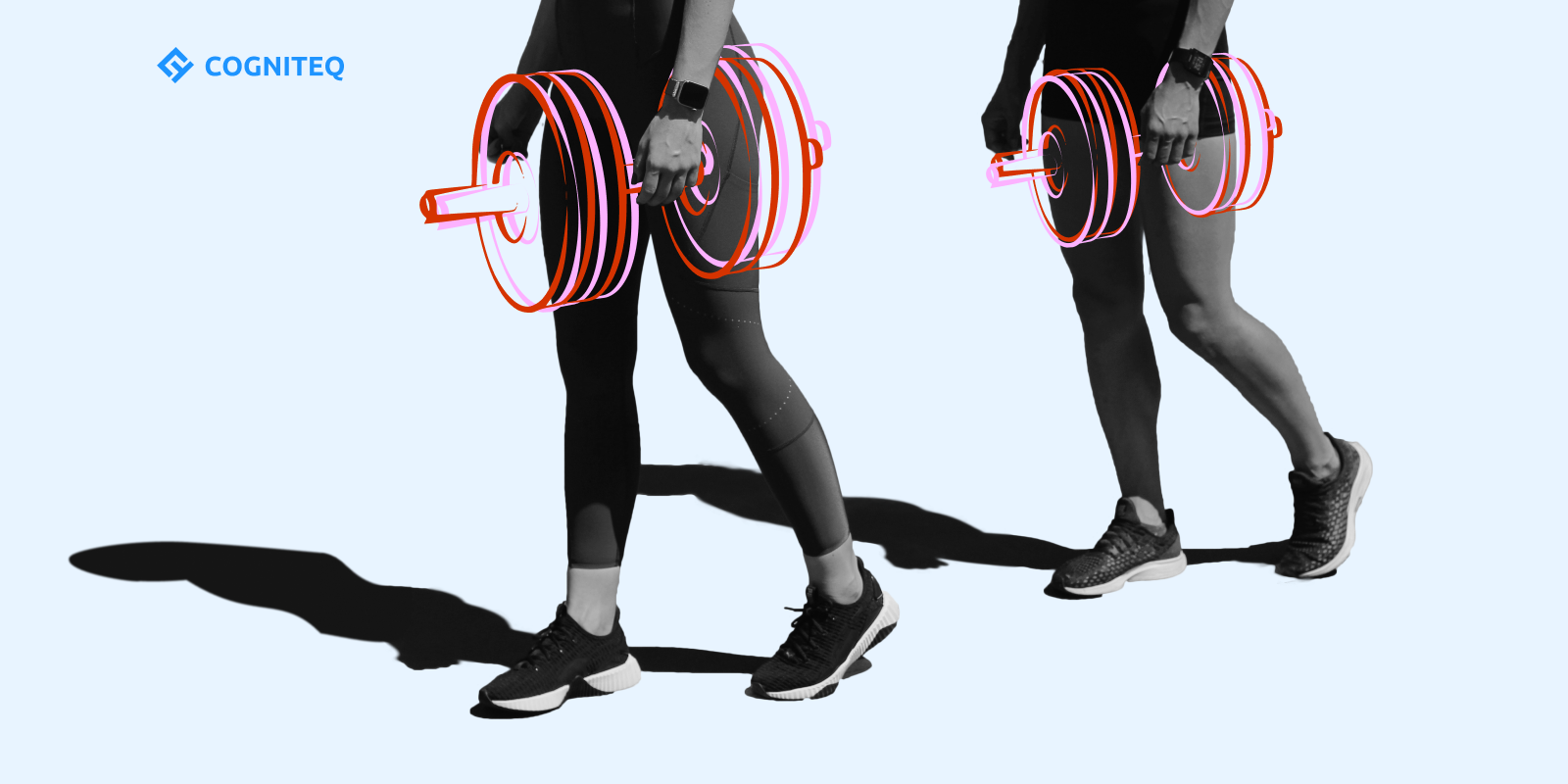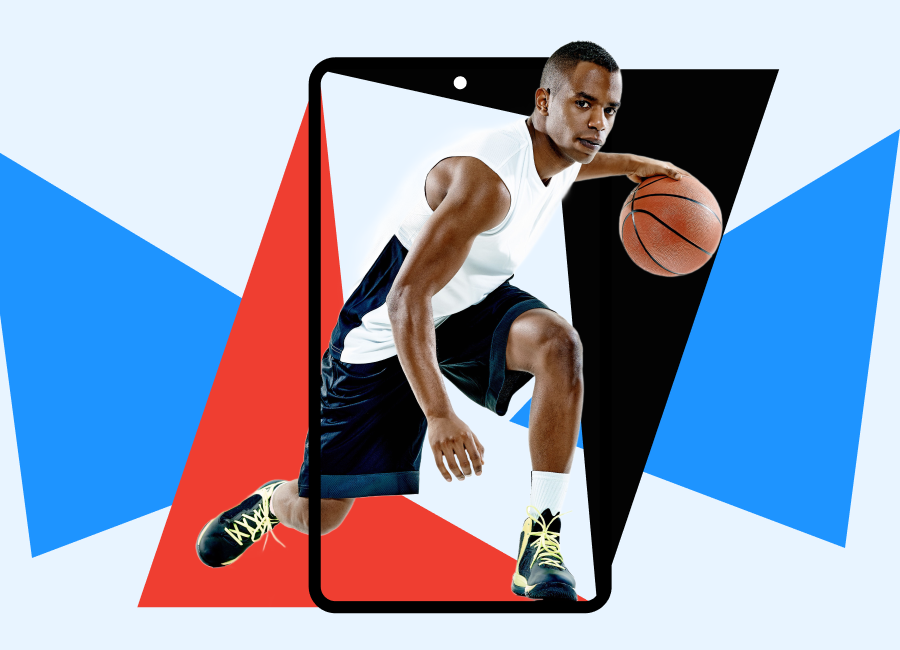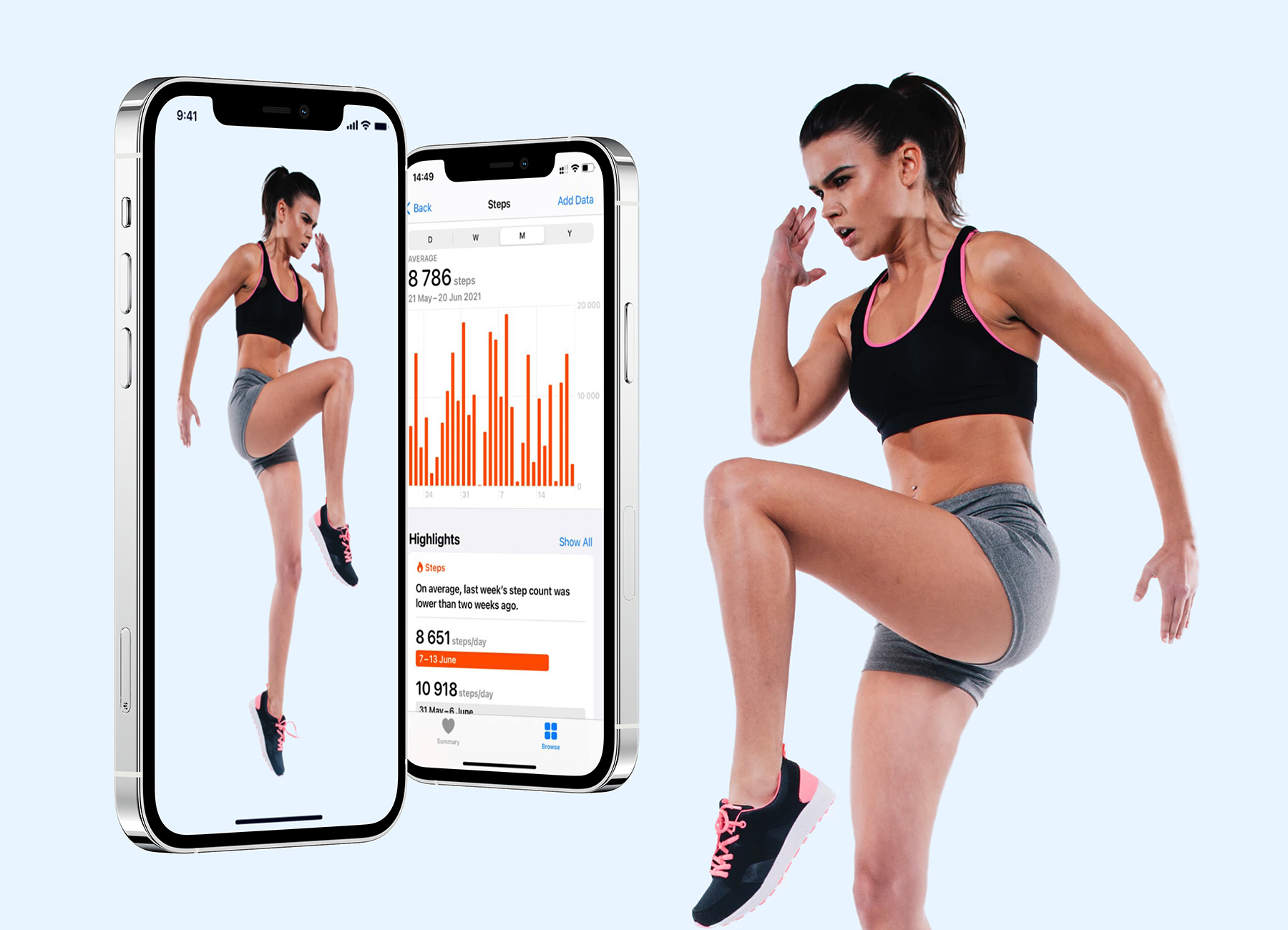GPS tracking solutions are being applied much more widely today than simply for online mapping or navigation. These technologies have already proven their usefulness for many commercial purposes (such as in the transportation and logistics industry) and non-commercial uses (such as rescue operations). In this article, we’d like to focus on one very specific sphere where demand for GPS-powered tools is growing. We’re speaking about GPS tracking technologies in sport.
Keep reading to learn more about the importance of these solutions, their role in the industry, and some shining examples of the use of GPS tracking technologies in sports.
Role of GPS tracking in sport
As you know, GPS tools make it possible to remotely monitor the real-time location of a person or an object, thanks to data provided by a global network of satellites.
GPS technology in sport relies on the same tools and functions. GPS features help coaches track the location of athletes and gather a vast amount of important data such as running speed, position of each player, distance, and other parameters that can be important for a particular game or activity.
All this enables more precise and high-quality performance tracking and ensures a better focus on the needs of each athlete as well bolstering individual professional growth. It’s not an exaggeration to say that the use of GPS technologies in sports could revolutionize the training of high-performance athletes and bring team results to a completely new level.
The use of GPS technology in sports is not exactly a recent innovation, of course. The first app of this type was built in 2006. But since then, given the positive impact of GPS technology in sport, it has moved forward a lot. The US sports technology market, for example, is growing rather quickly. In 2020, its value was at the level of $11.70 billion, and it’s expected by 2028 to reach $36.2 billion.
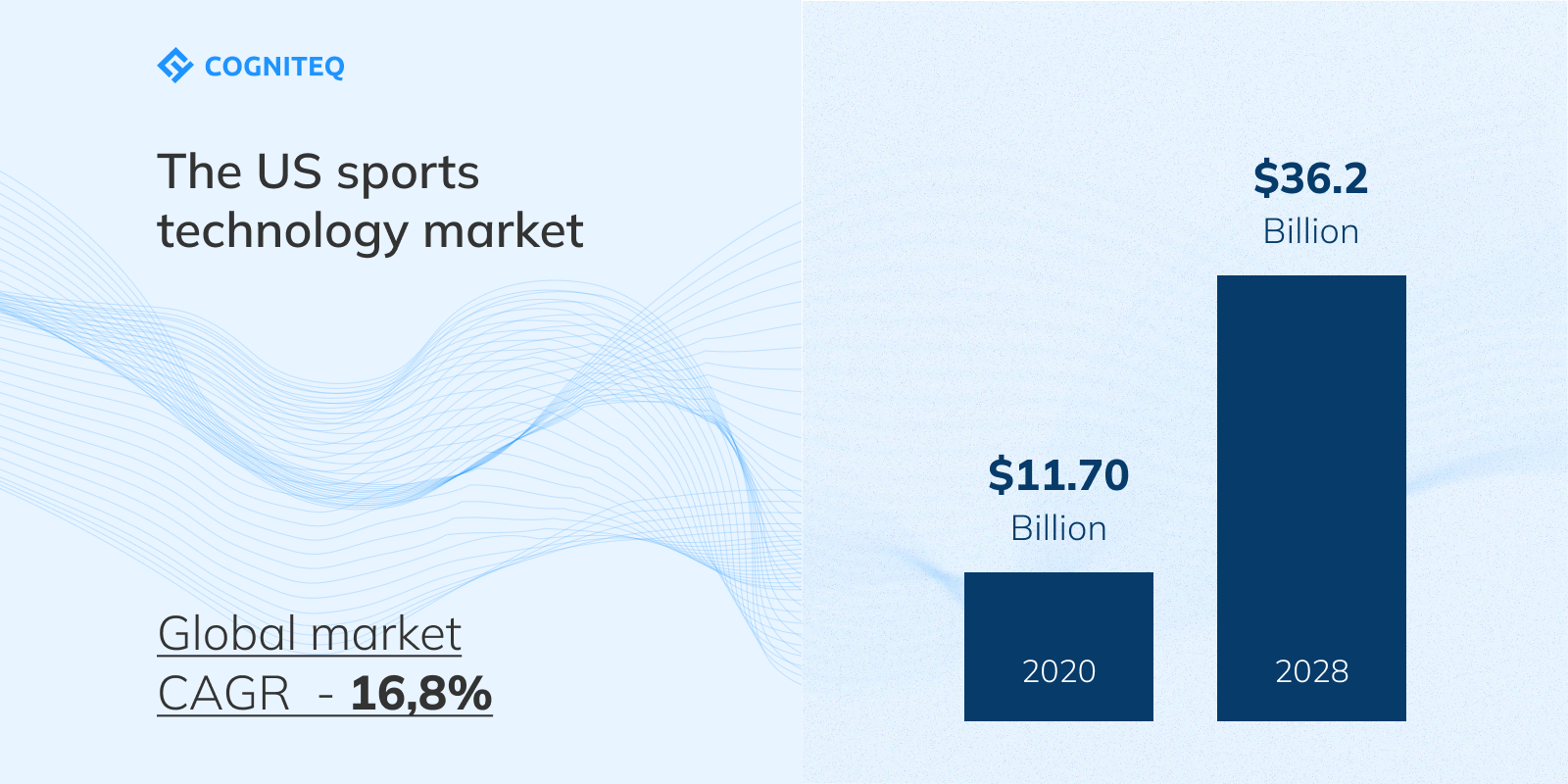
It’s important to note that, initially, GPS tracking was used in the sports industry as a useful way to monitor the positions of players in team field sports at various times, to allow for further analysis and the development of better strategies. However, today’s GPS trackers can be enriched with a wide range of sensors able to measure vital health parameters, making them useful for coaches who want to better understand the condition of their athletes and more efficiently organize the entire training process.
![]()
Let’s name some of the key benefits of GPS tracking in sport:
- Better athlete/team performance
- Enhanced game/match strategy analysis
- Ability to give objective feedback to players
- Reduced risk of injuries during training, thanks to better strategy
- Better athlete/team fitness level
GPS tracking technologies in sport: app features and functionality
If you want to understand the potential impact of GPS technology on sport, take a look at the most popular features commonly included in apps of this type. Mobile apps created for coaches and athletes are usually a part of a wider EPTS (Electronic Performance and Tracking System).
Thanks to GPS tracking technologies for sport, it is possible to gather the following data demonstrating players’ performance:
- Average running speed
- Running distance
- Acceleration/deceleration time
- Heart rate
- Period of high/low-intensity play
- Athlete’s load
- Positioning on the field
For collecting this data, a sport GPS tracker is usually enriched with additional sensors, such as gyro, magnetometer, and accelerometer.
The key features of traditional applications powered by GPS tracking in sports industry include the following.
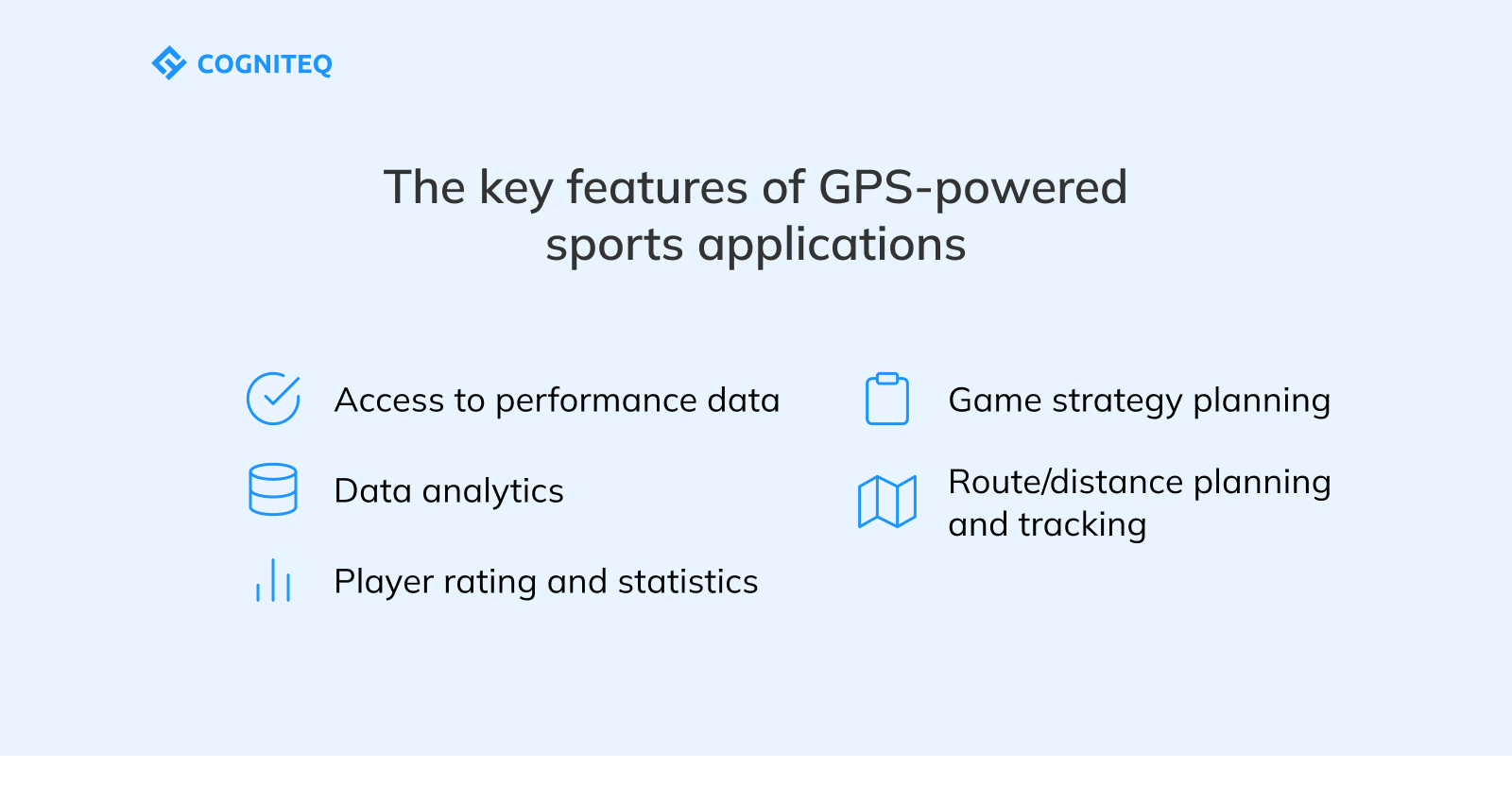
Access to performance data
To increase the efficacy of training, it is crucial to understand how an athlete is performing. For developing the right training strategy, coaches benefit from having the most accurate, real-time data available, which is possible thanks to GPS training devices and connected apps.
Data analytics
The majority of training apps not only allow the user to collect real-time data but also to view data history and analytics. Coaches can use ready-made data analysis, significantly lowering the risk of human error in comparison to analyzing the data on their own.
Player rating and statistics
When it comes to team field sports, it’s important for coaches to understand the condition and performance of each team member. The precise data provided by GPS trackers makes it very convenient to observe these factors.
Route/distance planning and tracking
This feature is particularly useful for racing sports. GPS tools can be used to create routes for training, track distance traveled, and analyze speed during training or competitions.
Game strategy planning
For the past two decades, GPS technology in sports industry has been widely used in field games where correct positioning of players is of great importance. GPS trackers allow coaches to see the position of each player at various moments in the game.
Want to build a GPS tracking app for sports?
We are always ready to help you! Let’s create a unique innovative solution together!
Benefits of GPS technology in sports
Solutions powered by the global positioning system technology for individual and team sports are gaining popularity. This tendency can be explained by the range of new possibilities that athletes and coaches can leverage thanks to using GPS units during a training session or a game.
- Competitive advantage for a team. In court-based sports, it is vital to build the right strategy and to track how it is implemented by team sport athletes. Coaches can rely on GPS data for tracking the performance of their teams and introducing the required changes to their strategies.
- Reduced injury risks. Thanks to getting access to the real-time performance data gathered by a GPS tracking system, coaches can understand when the risk of injury for athletes is too high and they need to have rest.
- Objective feedback. For professional growth and development of skills, athletes need to discuss their performance with coaches. But while sometimes the impressions and thoughts of coaches can be subjective, figures never lie. And that’s exactly when wearables enriched with global positioning system modules are of great use.
GPS tracking technologies in sports apps
Given the benefits of GPS tools in the sports industry, launching a GPS-powered app is a promising idea. Described below are a couple of the most well-known examples of sports apps powered by GPS functionality. Maybe one of these apps will inspire you to build your own solution for the needs of sports lovers, athletes or coaches.
- Nike Run Club App
This is one of the most popular apps for running. Using the power of GPS technology and the capacities of an accelerometer, it helps runners track their distance and plan routes.
- Catapult One
This is an athlete training solution aimed at analyzing and improving soccer performance. It is powered by a FIFA-authorized wearable GPS tracker which monitors positioning, speed, distance, power, load, and intensity data.
- Sports Tracker
This sports app offers access to maps and a GPS tracker for running, workouts, cycling, and fitness. One of the peculiarities of this application is its social feature. Today, its community includes millions of sports enthusiasts, who can connect, share videos and photos, and learn something new from professionals through the app.
- Sportlyzer Pro Player App
This app is connected to the sports coaching platform Sportlyzer.com. It allows advanced athletes to analyze their work with their coaches. With the help of this app, users can create their plans for each training session, view routes on a map, and track their results with GPS or add them manually.
The future of GPS-powered solutions in sports
The future of solutions enriched by global positioning system technology looks quite promising in the sports industry. The data gathered by GPS units play an important role in increasing the quality and accuracy of performance analysis. Given this fact, it is expected that developers will be continuously looking for new ways to make the processing of such data even more efficient than it is now. It can be achieved thanks to integrating AI tools into such solutions.
As for other changes that can be expected in the near future, further miniaturization of devices is probably the most anticipated one among individual athletes and team sports players. Longer battery life and higher security of wearables can be also named as priority tasks for engineers and software developers.
Examples of GPS tracking in sport by Cogniteq
At Cogniteq, we have solid experience in sports app development services, and our portfolio includes a lot of examples of successfully launched solutions for the sports industry. A great proportion of sports apps have GPS-powered features aimed at solving various tasks. We’ll mention just a couple of examples from our practice of using a GPS system in sports.
One of the examples of GPS tracking technologies in sport is a power metering app for cyclists called TeamZwatt. On this project, we worked with a company that builds power metering equipment for professional cyclists who take part in multi-stage races. We had to develop a couple of apps with similar functionality for the iOS and Android platforms. These GPS tracking apps help to monitor and evaluate race performance and play an important role in providing cyclists with the data needed to distribute power output most efficiently across the entire distance of their races.
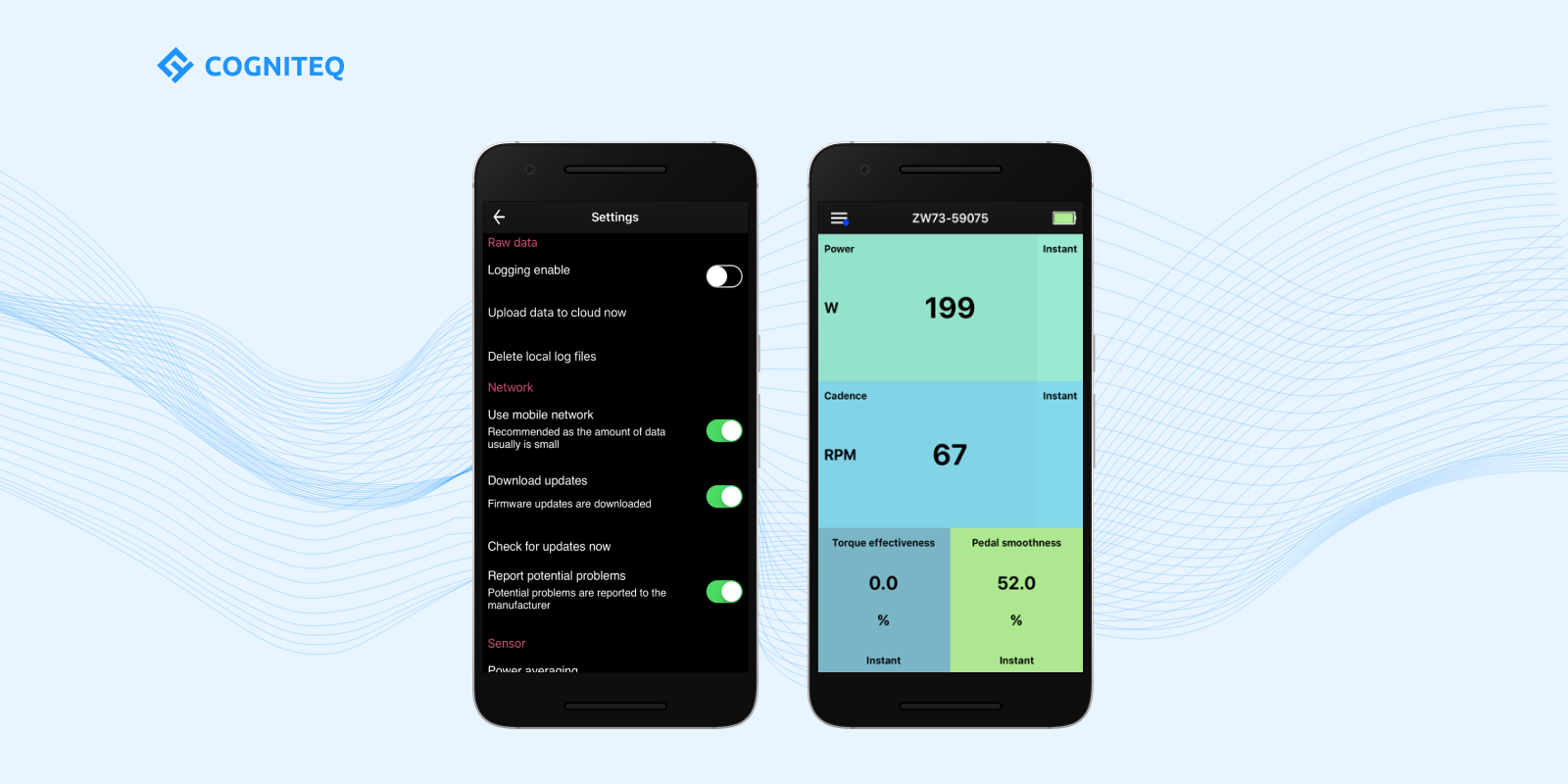
The solutions developed by our team not only have great practical importance for end-users but have helped the company increase sales of their devices and strengthened the position of its brand name in the market.
Another example of using GPS technology in the sports industry is StepUp Horse. This is a horse monitoring app that we built for the producer of unique tracking devices. These devices are designed to be placed around a horse’s thorax to measure its heart rate, breathing, speed, and run distance during training. The app is designed to give horse trainers real-time data and allow them to view statistics and data analysis after a training session.
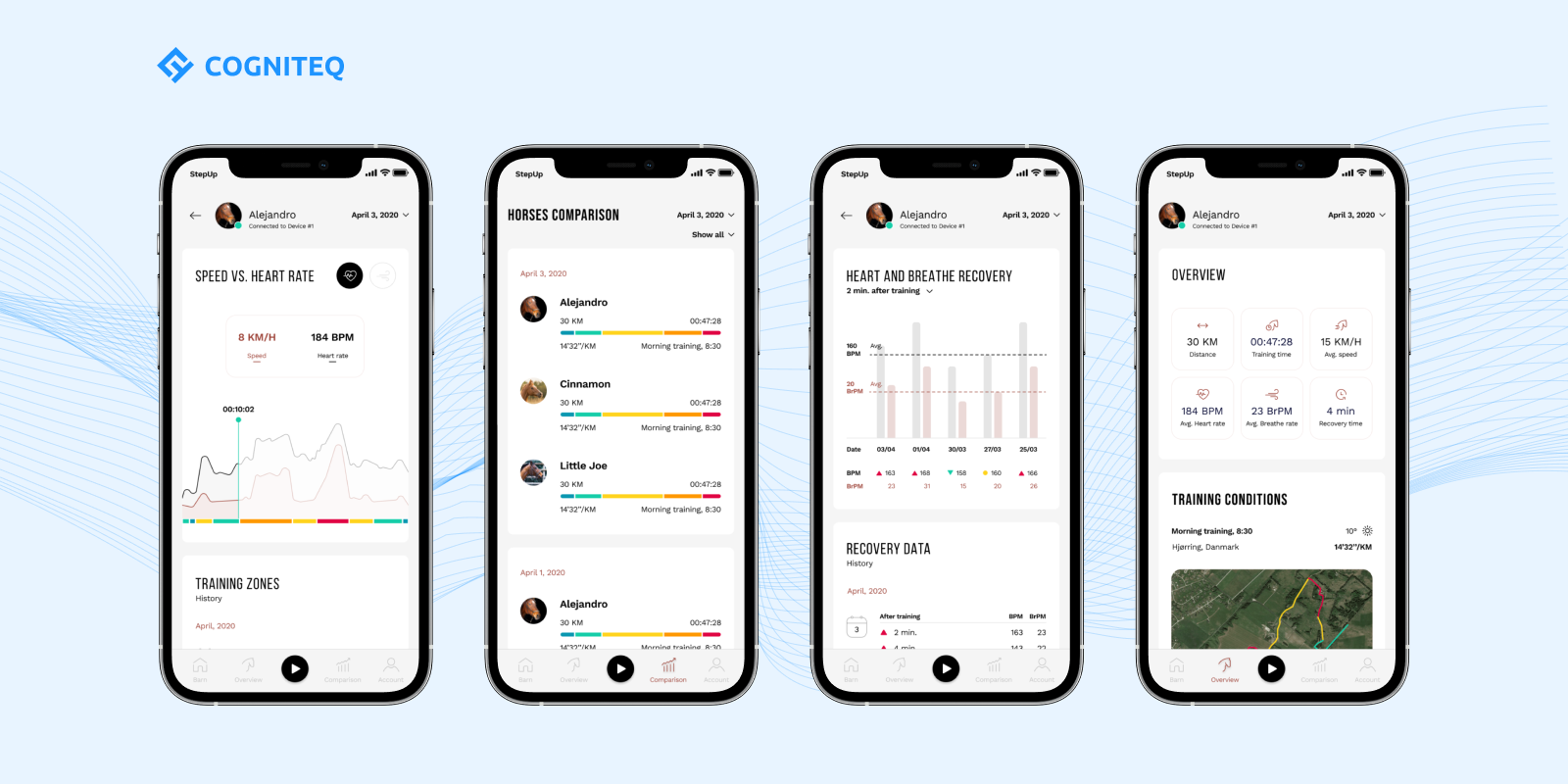
This solution is proof that for developing animal sports we can use exactly the same approaches that are applied in the traditional sports industry.
We offer full-cycle custom mobile app development services for projects from various industries, but sports is one of the fields where we have the strongest expertise. We’ve worked with prominent sports clubs and teams as well as with ambitious startups that were just beginning their business journey.
Today we can proudly say that we deeply understand the needs and the demands of this market. But what’s even more important is that we never stop learning and always do our best to stay up-to-date with all the latest market trends.
If you have an idea for a sports app, don’t hesitate to contact us! Let’s discuss what we can offer you!
FAQ
What are the main issues with using GPS technologies in sports apps?
One drawback of using GPS tracking technologies in sports apps is related to privacy issues and concerns about the loss of sensitive data. Another is that it requires professional athletes to use special wearables during training or games, which sometimes can be inconvenient.
What devices are used for GPS tracking in sports?
Various types of sports wearables are available today. Usually, they are small devices worn, for example, on a sleeve or undershirt. For swimming, it is possible to use special devices worn at the back of the swim cap. Cyclists may use GPS units fixed directly on a bike.
What are the key differences between professional sports apps and apps for sports lovers?
General apps for sports enthusiasts usually focus only on a couple of basic parameters, while those designed for professional athletes and coaches may have more advanced data analytics features and allow users to track more metrics.
